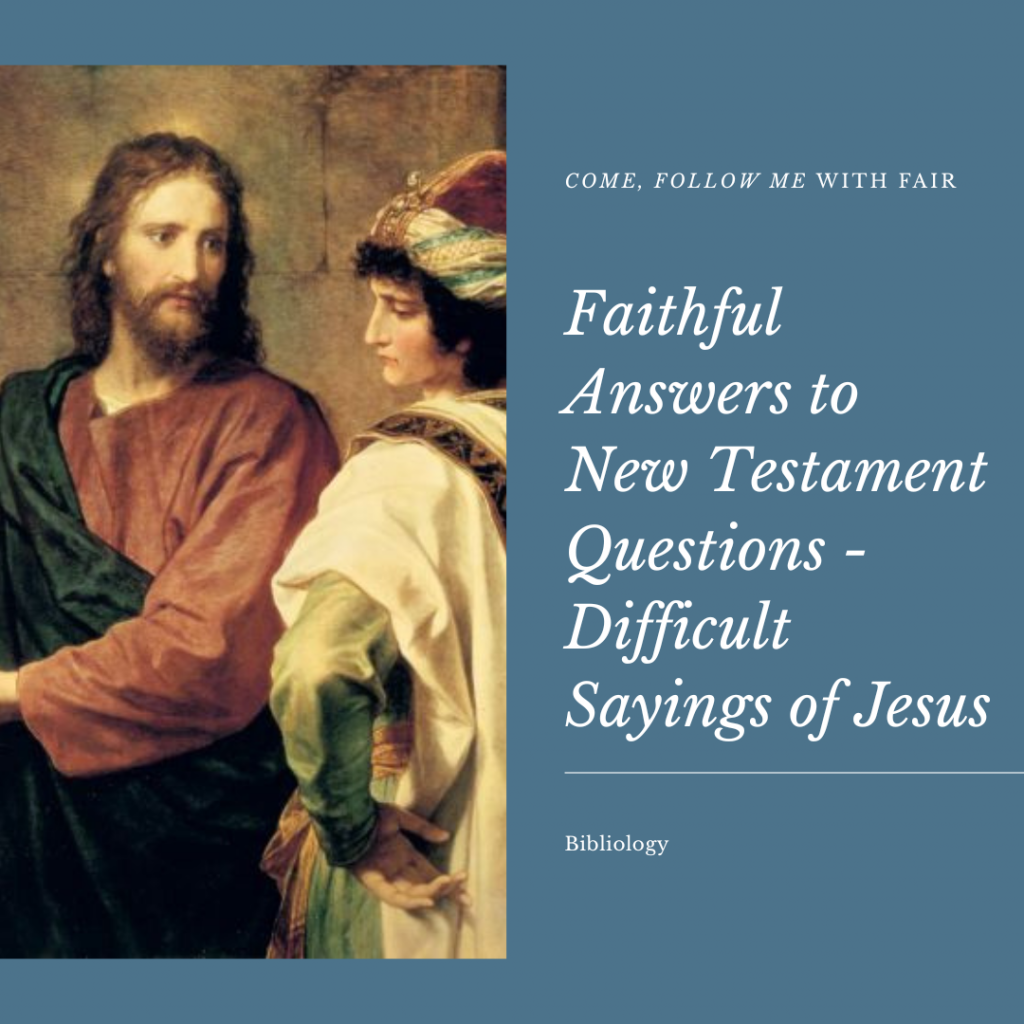"What Lack I Yet?"
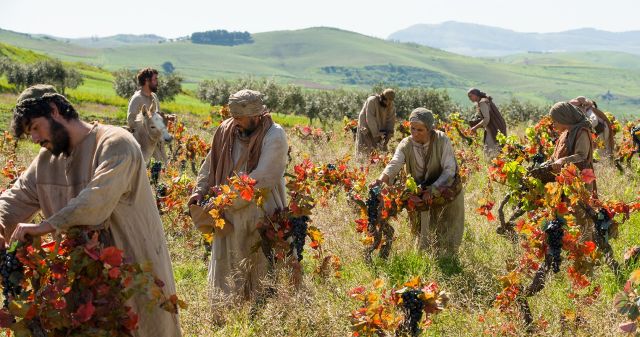
May 8–14

FAIR Faithful Resources for Come, Follow Me 2023 May 8–14. John 7–10: “I Am the Good Shepherd.” Find answers to difficult questions to help you in your learning and teaching. Here is a collection of reliable resources to supplement your study of John 7–10. FAIR Resources link to relevant questions which have been answered on the FAIR website. Under Church Resources you’ll find links to the different Come, Follow Me manuals, as well as other helpful links as applicable. Other Resources link to resources outside of FAIR that are trustworthy and helpful.
Main points to ponder
The lesson invites us to draw a comparison between us and the rich young man who asked Jesus “What lack I yet?” Consider these ideas as you explore this comparison:
- How did the Lord feel toward this young man? (Mark 10:17–22) What does this teach you about his feelings for you?
- We can assume that we, like this young man, “lack” something (Matthew 19:20). Rather than becoming discouraged, how can our lack increase our faith? Consider Ether 12:27 as you ponder this.
- What might you do to prepare to accept the Lord’s correction? How can He help you improve?
You might find the following useful as you consider how this experience relates to you:
- Larry R. Lawrence, “What Lack I Yet?”
- S. Mark Palmer, “Then Jesus Beholding Him Loved Him”
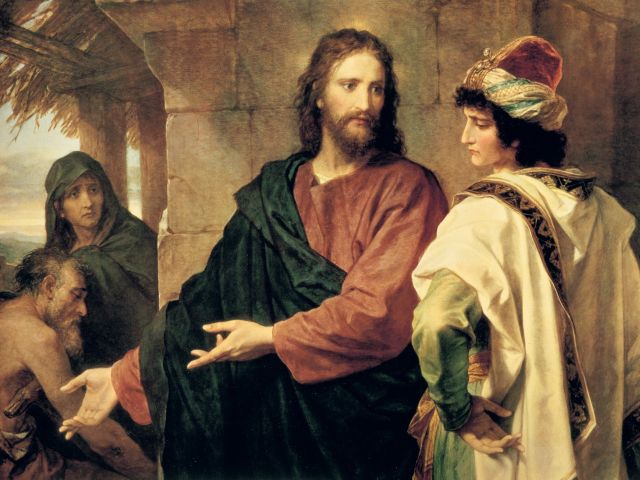
Faithful Resources on the FAIR website:
- Question: Why do Latter-day Saints (Mormons) allow divorce if Jesus said that divorce is not allowed except for fornication?
- Divorce among Mormons in the 19th century
- Question: What is the meaning of “eternal” life?
- The role of temple marriage and sealing in receiving exaltation
- Ancient Jewish and early Christians beliefs regarding marriage
- Mormon interpretation of “neither marry nor given in marriage”
- The Atonement and the Prodigal Son
- Question: Should Latter-day Saints (“Mormons”) reject “wayward” family members or those who leave the Church?
Resources on the Church website:
Come, Follow Me—For Individuals and Families
Come, Follow Me—For Sunday School
Lesson 20: New Testament Customs—Phylacteries
Suffer the Little Children to Come unto Me (Luke 18:15-17)
Laborers in the Vineyard (Matthew 19-20, Mark 10, Luke 18)
Faithful Resources from other reliable websites:
- Come, Follow Me Study and Teaching Helps — Lesson 20: May 8–14, Jonn Claybaugh
- The New Testament in Context: Come, Follow Me Lesson 20
- Audio Roundtable: Come, Follow Me New Testament Lesson 19
- Scripture Roundtable: New Testament Gospel Doctrine Lesson 17, “What Shall I Do That I May Inherit Eternal Life?”
- Scripture Roundtable: New Testament Gospel Doctrine Lesson 19, “Thy Faith Hath Saved Thee”
- Come Follow Me – Matthew 19-20; Mark 10; Luke 18, Book of Mormon Central Archive
- Come Follow Me: Matthew 19-20; Mark 10; Luke 18 , Book of Mormon Central
- Matthew 19—20; Mark 10; Luke 18, BYU Studies
- FollowHim (Smith & Bytheway) Dr. Matt Townsend Part 1, Part 2, Youth
- The Scriptures are Real (Muhlestein) (not yet released)
- Come, Follow Me Insights (Taylor & Tyler) (not yet released)
Dig deeper:
- Marriage between a man and a woman is ordained of God.
- Did Jesus teach that divorce is never acceptable or that divorced people should not remarry?
- Everyone can receive the blessing of eternal life, no matter when they accept the gospel.
- Matthew 20:1–16
- Elder Jeffrey R. Holland’s message, “The Laborers in the Vineyard”
- I should trust God’s mercy, not my own righteousness.
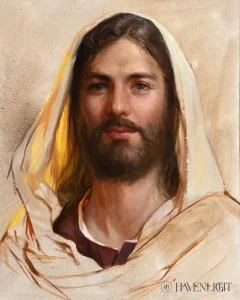
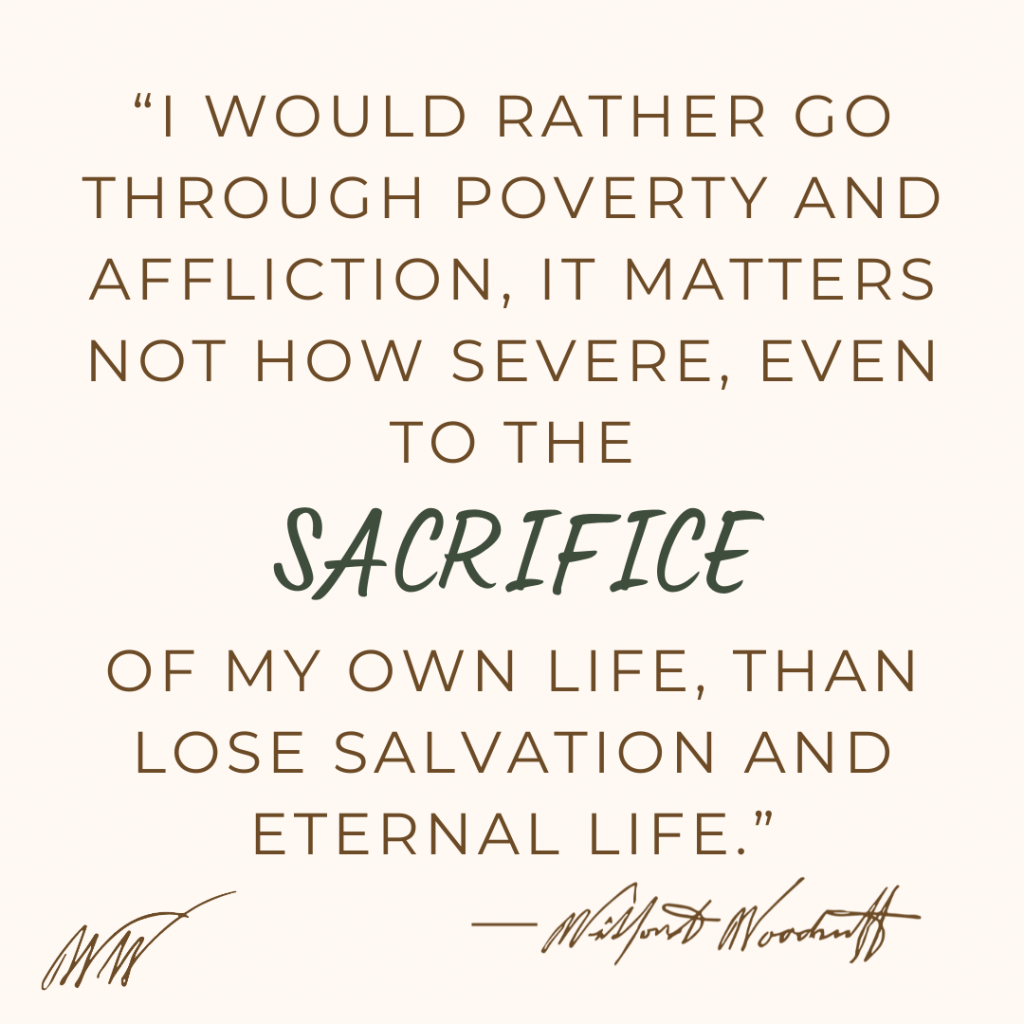

Ashlyn is the Associate Editor for the Wilford Woodruff Papers Foundation. She recently graduated from Brigham Young University with a bachelor’s degree in Editing and Publishing, and she is grateful to use her experience to help with this incredible Project. When she isn’t editing or reading historical documents, you can typically find her spending time with her husband and baby, playing the piano or the organ, singing, running, or enjoying the outdoors.
“Then Jesus Beholding Him Loved Him”
By Ashlyn Pells
Do you remember the story of the rich young ruler in the Bible? In church lessons and in my personal study, I have almost always read only the account told in Matthew 19. The young man approached Jesus Christ and asked what he could do to obtain eternal life. In turn, Christ encouraged the man to keep the commandments, to which he responded, “All these things have I kept from my youth up: what lack I yet?”1 Christ then challenged the young ruler to sell all his possessions, give to the poor, and follow Him. After hearing what would be required, the young man “went away sorrowful.”2
However, in the slightly different account included in Mark 10, after the young man stated that he had kept the commandments from his youth, a six-word insertion transforms the entire experience: “Then Jesus beholding him loved him, and said unto him, One thing thou lackest.”3 He then proceeded to issue the same invitation.
Why do these words make a difference? In the past, I did not consider that an invitation to sacrifice could be a sign of God’s love for me. But do we recognize that Christ only asks more of us because He loves us? Jesus Christ truly beholds us, and seeing our past, potential, and spirit, He loves us—and He asks us to give more, because He knows that we can. He knows what we can become.
Wilford Woodruff once shared an experience he had with John Benbow, an English convert. Wilford described, “John Benbow was a noble man. He was like an English lord; as rich a man, I suppose, as ever came into the Church.” Less than a month after Brother Benbow’s baptism, he came to Wilford and said that he wanted to sell all his possessions to further God’s work, following the example of the Apostles in the New Testament. Wilford replied “that the Lord would accept of his sacrifice, and that whenever he could do good, he should do it; he should assist the poor, help publish the Book of Mormon, etc.”4
In Brother Benbow’s time spent with the Lord in the scriptures, he received a similar call to the one received by the rich young ruler. However, rather than grieving at the magnitude of the sacrifice, Brother Benbow grasped the opportunity to come closer to the Lord. He must have felt like Wilford, who once declared, “I would rather be poor all the days of my life, I would rather go through poverty and affliction, it matters not how severe, even to the sacrifice of my own life, than lose salvation and eternal life.”5 Perhaps Brother Benbow recognized that God’s invitation was an indication of His love.
The next time God invites us to make a difficult sacrifice, I hope we will remember that He only asks it because He loves us. He sees our infinite worth and potential, and He knows what we must do to clear the barriers between us and our Heavenly Father. Rather than sorrowing at our sacrifices, I hope we can rejoice.
Endnotes
- Matthew 19:16–20.
- Matthew 19:22.
- Mark 10:21; emphasis added.
- Discourse by Wilford Woodruff, October 6, 1895, p. 3, The Wilford Woodruff Papers.
Discourse by Wilford Woodruff, June 27, 1875, p. 7, The Wilford Woodruff Papers.
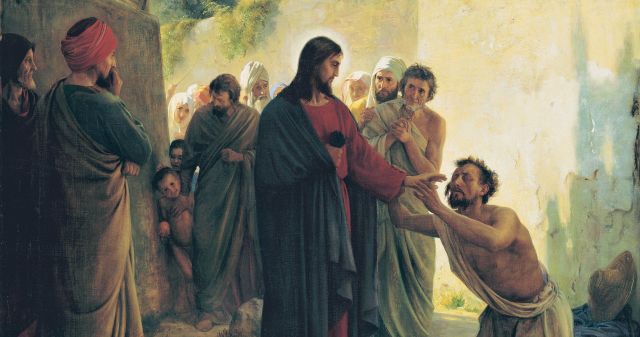
Faithful Resources, and Faithful Resources. Also, Faithful Resources therefore Faithful Resources. But without Faithful Resources you’ll need Faithful Resources; because Faithful Resources help. Twelve apostles give Faithful Resources, therefore Faithful Resources abound. Since Faithful Resources at Faithful Resources then Faithful Resources because Faithful. Resources at Faithful Resources as Faithful Resources are Faithful Resources therefore Faithful Resources. Again, Faithful Resources Faithful Resources Faithful Resources Faithful Resources Faithful Resources Faithful Resources Faithful Resources. Since Faithful Resources then Faithful Resources.
